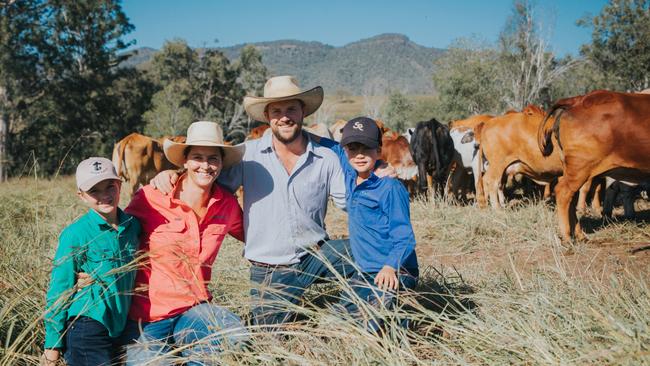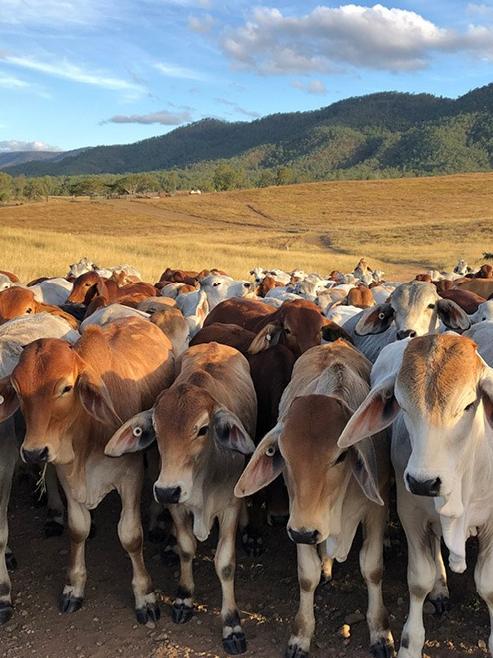CN30: Cattle Australia calls for review of MLA carbon neutral 2030 goal
Debate within the red meat sector about adopting a climate neutral target could lead to a review of MLA’s carbon neutral 2030 goal.
Debate within the red meat sector about adopting a “climate neutral” target could lead to a review of Meat and Livestock Australia’s carbon neutral 2030 goal.
A recent CSIRO report commissioned by the MLA showed the industry was not likely to hit its CN30 target but could achieve “climate neutrality” – a point where emissions no longer contribute to global warming – before 2030.
Following the study by scientist Brad Ridoutt, peak body Cattle Australia endorsed a new climate neutral target.
Interim chief executive Adam Coffey said cattle producers had long called for the sector’s methane emissions to be treated differently to carbon dioxide emissions, and emerging metrics used to measure climate neutrality could address those issues.
“We talk about the biogenic carbon cycle, and we want it differentiated from fossil fuel emissions,” Mr Coffey said. “It is nowhere near as simple as that, but a climate neutral target is based on different greenhouse gas accounting metrics … measuring what our emissions are actually doing in the atmosphere, rather than a CO2 equivalent.
“Climate neutrality shouldn’t be regarded as a lesser target than carbon neutrality. It is about modernising our target.”

Mr Ridoutt said the calculation used emerging metrics called GWP* and radiative forcing footprint, which treated short-lived gases such as methane differently than longer lived gases.
“The IPCC (Intergovernmental Panel on Climate Change) acknowledges a slightly declining emission of these short-lived gases is not adding to climate change,” Mr Ridoutt said.
“Saying you are no longer adding to climate change is a goal no one else can claim.
“For CO2 emitters, they would have to be net-zero CO2 to say the same thing.”
The US National Cattlemen’s Beef Association has adopted a climate neutral goal, while the UK’s NFU has called for adoption of the GWP* metric.
MLA environmental sustainability project manager Dr Margaret Jewell said the organisation was open to an independent review of the CN30 target.
“We acknowledge that CN30 has been a brilliant target for a lot of reasons, primarily because it has driven a lot of investment into technologies that can reduce the emissions from our industry,” she said.
“To achieve climate neutral we need to invest in the same things as to achieve carbon neutral.”
She said Mr Ridoutt’s report had been commissioned to help the industry understand when it would hit climate neutral status.
“We have this very ambitious carbon neutral goal, and we knew from reading all the research about climate neutrality that we would achieve climate neutral on that path,” Dr Jewell said. “We wanted to understand when we might expect that to happen … because it is an important milestone to celebrate.”

Australia’s beef industry has reduced its net greenhouse gas emissions by more than 64 per cent since 2005, with MLA and partners investing more than $140 million in delivering CN30 projects since 2017.
Methane makes up most of emissions from the red meat sector.
Some MLA funds have gone into researching feed additives, including Bovaer and red asparagopsis seaweed, which have potential to reduce methane produced by ruminant digestion.
Dr Jewell said drawbacks of a review could include a shift of research dollars away from technologies that could fast-track emissions reductions required to achieve both climate and carbon neutral targets.
“There is no silver bullet, and there are long-term and short-term technologies that are going to be required,” she said.
Dr Jewell said farmers who wanted to learn more about cutting emissions could start with the MLA’s Carbon 101 learning modules, and also use its online Carbon Calculator tool.
“We also have a Carbon Edge program being piloted, to help people put together an action plan to reduce emissions,” she said.




